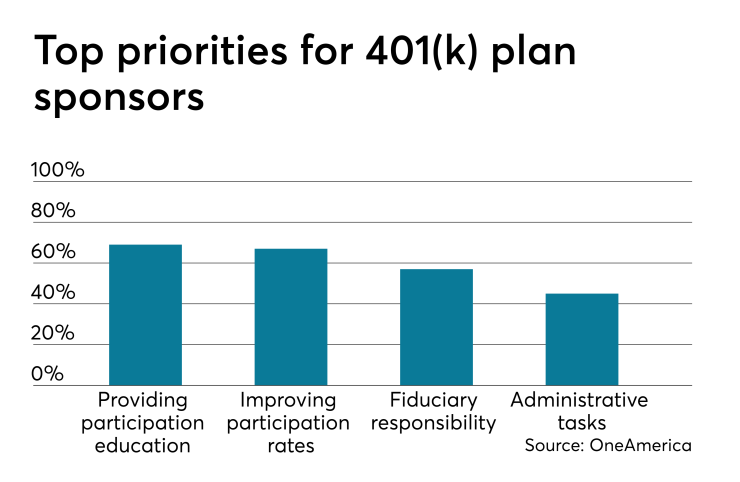The state of retirement readiness for most Americans is not good — but that may be a boon for advisers.
Nearly half of older U.S. adults have saved nothing in any kind of retirement savings account. The U.S. Government Accountability Office in March reported that among Americans 55 years old and older, 48% had zero savings in an employer-sponsored plan or an individual retirement account. Some states are starting to do more to address this alarming trend.
About a decade ago, state legislatures around the country began questioning the retirement readiness of their residents, which paved the road for state-mandated retirement plans in 10 states over the last two years.

That experiment, begun first in Oregon — which in July 2017 became the first state to auto enroll its residents in a retirement savings plan — has spread to California, Connecticut, Illinois, Maryland, Massachusetts, New Jersey, New York, Oregon, Vermont and Washington state.
Can it expand further?
Chad Parks, CEO and founder of Ubiquity Retirement + Savings, and Ted Benna, long known as the “father of the 401(k) plan,” say the answer is yes. For our focus on retirement this month, we asked contributing writer Bruce Shutan to
Almost half of the workforce doesn’t have access to an employer-provided retirement savings plan, and the bulk of those employees work in businesses with 100 or fewer employees.
“The ideal solution,” Parks says, “would be that this becomes a federal mandate because we’re going to get 50 different flavors of nuanced, mandated retirement savings, and that’s just going to make it harder to administer efficiently so that it’s fair to the employees.”
Parks and Benna argue that these state initiatives could form the basis for a national model. For now, as usual, politics stands in the way.





